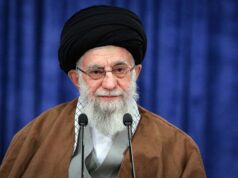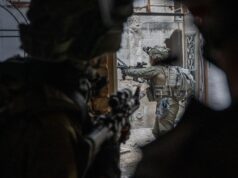A last-minute switch of speakers yesterday in Stiteler Hall left audience members listening to Middle Eastern expert Jonathan Schanzer in place of renowned Middle Eastern affairs analyst Walid Phares.
Phares, who had been slated to speak, became ill at the last minute.
Schanzer’s talk broadly focused on defining radical Islam, and analyzing, or rather, criticizing, the American response to it.
His long resume includes positions such as director of policies for the Jewish Policy Center; former intelligence analyst for the department of treasury; Ph.D. candidate at the University of King’s London; and former associate producer for CNN.
Schanzer has also been published in The Wall Street Journal and the New York Post and has appeared on television with MSNBC, Fox News Network and al Jazeera as an expert on the Middle East.
Radical Islam, he explained, is a minority outgrowth of Islam claiming as few as 10 percent of practicing Muslims worldwide.
While all religions have their extremes, Schanzer argued, Islam features the largest of such minority groups, partially because of the sheer numbers.
Even if they account for only 10 percent of the faithful, given that Islam is composed of roughly 1.4 billion adherents, that’s 150 million people – about half the population of the United States.
Despite this number, Phares focused his attention on the other 60 to 90 percent of Muslims whom he dubbed the “silent moderate majority.”
“Can somebody in this room name a Muslim moderate? The Martin Luther Kings of Islam?” he challenged the audience, only to prove that “these people do not have a soap box.”
“They’re letting what we call the voice from the cave dictate how the …West views Islam,” he said.
Schanzer covered a brief timeline of radical Islamic violence, from the 1928 foundation of the Muslim Brotherhood to the recent events of 9/11.
He concluded that, for over 50 years, until 1979’s Islamic Revolution in Iran, the United States’ response was evasive and minimal.
The government wrongfully addressed these events as acts of criminal violence instead of acts of war, Schanzer said. As a result, he claimed, the U.S. lost its power of deterrence.
“I don’t really have any answers” to specific issues, he said, after spending an hour discussing botched American foreign policy and reiterating the disastrous momentum of an unchecked radical minority group.
Schanzer did go on to offer some suggestions: First, he urged people to “reestablish deterrence.”
Secondly, he noted that people should suggest moderate governments speak out.
Thirdly, he told the audience that society needs to “find a way to actually begin a dialogue here at home.” He advocated for educating the American public on the realities of Islam and stimulating discussion regarding America’s role in this ongoing struggle.
“I learned things that I didn’t know before,” said College junior Jennifer Nath. “He also confirmed some things I had been thinking about, such as how there isn’t a strong moderate voice in the Arab world. … It was nice to hear him say that.





